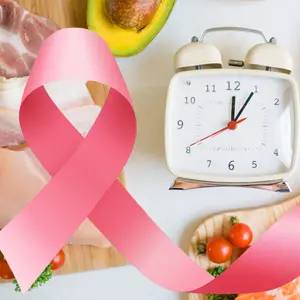

Integrative Health and Wellness

Integrative Health and Wellness
Self-Care and Self-Awareness Key to Holistic Nursing
“Taking good care of yourself is a prerequisite to providing holistic care for your patients,” according to Lucia Thornton, past president of the American Holistic Nurses Association (AHNA).
The AHNA defines holistic nursing as “all nursing that has healing the whole person as its goal.” In order to do this, says Thornton, the nurse must be a caring and healing presence.
Thornton, who has been involved with nursing, holistic healing, and healthcare for over 35 years, believes self-care is a pre-requisite in the process of bringing caring and healing back into the healthcare system and providing holistic care. “When we do so, we begin to realize our wholeness and actually become a healing presence for our patients.”
Mastering clinical nursing techniques is essential to help patients heal and recover, but "who you are, how you feel inside, and the attitude that you convey also have a profound effect on the patient," says Thornton. If a nurse enters a patient’s room feeling exhausted, they’re creating an unhealthy environment, but if they’re content and peaceful, a healthy and wholesome environment is created.
Nurses should reflect on their physical, mental, emotional, social, and spiritual well-being, says Thornton. They should ask themselves questions like, Is my diet optimal? Do my breathing patterns promote well-being? Do I love and accept myself and other? Are my relationships loving?
“Who you are, how you feel inside, and the attitude that you convey have a profound effect on the patient.”
Self-awareness is critical to holistic nursing and some of the practices utilized by holistic nurses are meditation, introspection, dreamwork, mindfulness, and journaling. These will help gain awareness of patterns and habits.
Another technique Thornton recommends is creating intention by setting aside concerns and creating an environment for caring-healing interaction. This can be done in just a few seconds by: pausing before entering a patient’s room; closing your eyes; breathing deeply; telling yourself you are here for the patient; being present.
The depth and quality of presence that a nurse has with his or her patient is a characteristic of the holistic practice. This means relating to the patient at a heart-centered and spiritual level.
Holistic nursing is practiced throughout the healthcare spectrum—in hospitals, private practice, palliative, long-term care, and hospice settings, as well as in research. Private-practice holistic nursing is common, and the interventions used include energy healing, biofeedback, massage, relaxation technique, music therapy, acupressure, nutritional and lifestyle counselling.
“Holistic nursing is a way of being, a way of living, and a way of practicing that will transform your life and transform your work,” says Thornton.
REFERENCES
Thornton, L. (2008, January). Holistic nursing: A way of being, a way of living, a way of practice! Imprint/National Student Nurses Association. https://www.ahna.org/Portals/66/Docs/Resources/Publications/Holistic%20Nursing%20A%20way%20of%20bei…


 By
By







